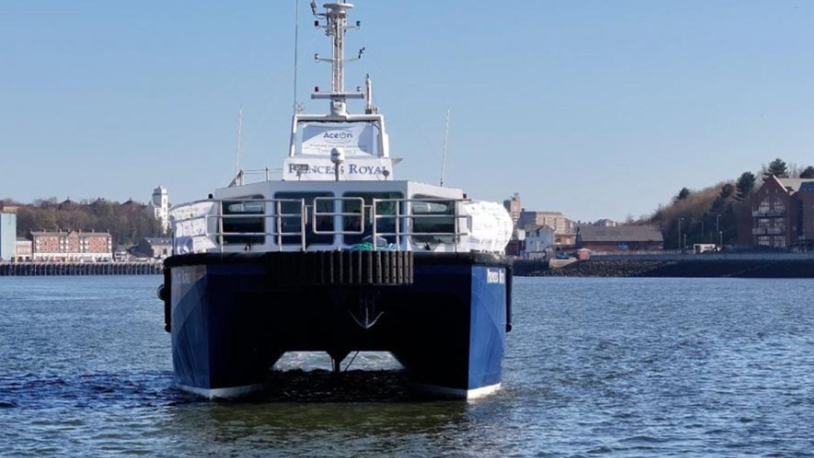UK Consortium Tests Zero-Emissions Propulsion System on Princess Royal Research Vessel
Key Ideas
- AceOn Group successfully tests hybrid hydrogen and battery propulsion system on Princess Royal research vessel in the North Sea and River Tyne.
- The RESTORE project, funded by UK Department for Transport and Innovate UK, aims to develop zero-emissions propulsion for crew transfer vessels servicing offshore windfarms.
- Consortium involving multiple companies and universities comes together to lead the way in clean maritime technology innovation.
- Project showcases the potential of the UK in creating globally competitive clean energy products for the marine industry.
A consortium of British companies and universities, led by AceOn Group, has conducted successful trials of a zero-emissions propulsion system on Newcastle University’s research vessel, Princess Royal. The initiative, part of the £4.6M RESTORE project, combines hydrogen and battery technology to power crew transfer vessels servicing offshore windfarms. The project, funded by the UK Department for Transport and Innovate UK, aims to promote clean maritime technology. The collaboration involved AceOn Group, Offshore Renewable Energy Catapult, Engas Global, and several universities. The Princess Royal demonstration in the North Sea and River Tyne signifies a milestone in developing sustainable marine propulsion systems. AceOn Group's CEO Mark Thompson highlighted the UK's potential in clean maritime technology and the commitment to creating competitive products. The project, under the UK SHORE programme, demonstrates efforts to decarbonize the marine industry through innovative technology and collaborative partnerships.
Topics
Maritime
Clean Energy
Innovation
Sustainability
Funding
Environment
Research
Collaboration
Marine Technology
Latest News
